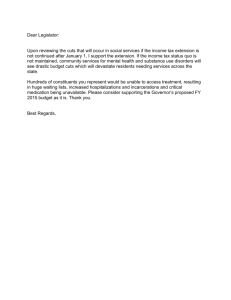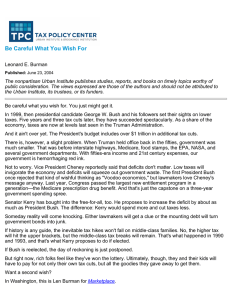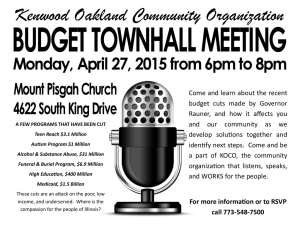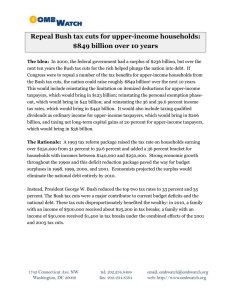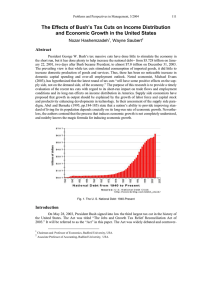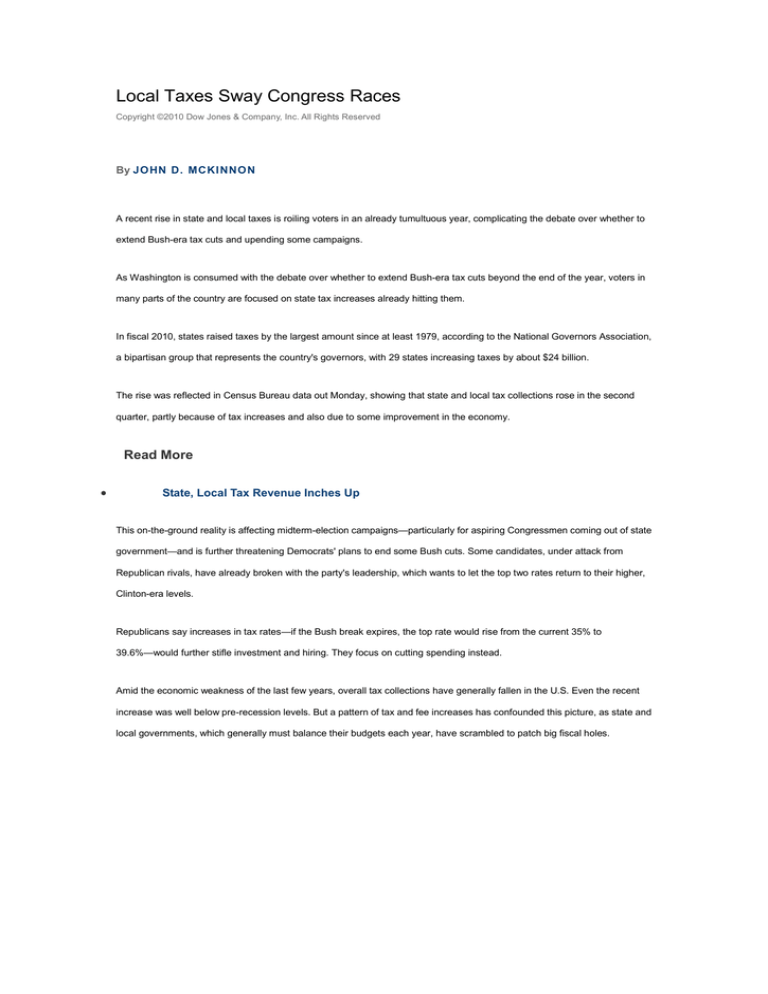
Local Taxes Sway Congress Races
Copyright ©2010 Dow Jones & Company, Inc. All Rights Reserved
By JOHN D. MCKI NNON
A recent rise in state and local taxes is roiling voters in an already tumultuous year, complicating the debate over whether to
extend Bush-era tax cuts and upending some campaigns.
As Washington is consumed with the debate over whether to extend Bush-era tax cuts beyond the end of the year, voters in
many parts of the country are focused on state tax increases already hitting them.
In fiscal 2010, states raised taxes by the largest amount since at least 1979, according to the National Governors Association,
a bipartisan group that represents the country's governors, with 29 states increasing taxes by about $24 billion.
The rise was reflected in Census Bureau data out Monday, showing that state and local tax collections rose in the second
quarter, partly because of tax increases and also due to some improvement in the economy.
Read More
State, Local Tax Revenue Inches Up
This on-the-ground reality is affecting midterm-election campaigns—particularly for aspiring Congressmen coming out of state
government—and is further threatening Democrats' plans to end some Bush cuts. Some candidates, under attack from
Republican rivals, have already broken with the party's leadership, which wants to let the top two rates return to their higher,
Clinton-era levels.
Republicans say increases in tax rates—if the Bush break expires, the top rate would rise from the current 35% to
39.6%—would further stifle investment and hiring. They focus on cutting spending instead.
Amid the economic weakness of the last few years, overall tax collections have generally fallen in the U.S. Even the recent
increase was well below pre-recession levels. But a pattern of tax and fee increases has confounded this picture, as state and
local governments, which generally must balance their budgets each year, have scrambled to patch big fiscal holes.

